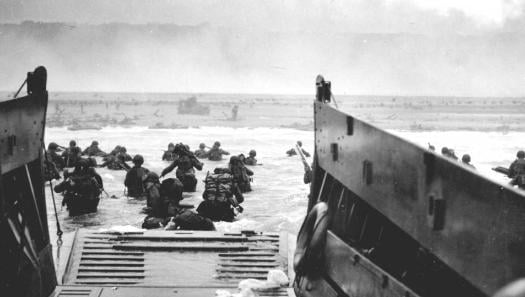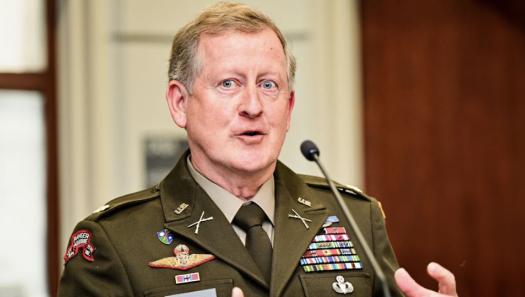Military & Veterans News
Vet News: Twenty Years Later: Remembering Victims and Survivors of Beirut Bombing
Staff Sgt. Benjamin N. Haynes, United States Marine Corps
"When we fight, we strongly believe in God, Corps and Country, but we fight for our buddies."
-Anonymous Beirut Veteran
PARRIS ISLAND, S.C., October 23, 2003 -- At approximately 6:22 a.m., Oct. 23, 1983, a truck loaded with 2,000 pounds of explosives crashed through the gates of the U.S. Marine Corps Barracks in Beirut, Lebanon. The bomb exploded inside the 1st Battalion, 8th Marine Regimental Battalion Landing Team taking the lives of 241 Marines, sailors and soldiers and wounding more than 100 others.
The bombing is considered the most deadly act of terrorism prior to Sept. 11, 2001, when the world witnessed the destruction of the World Trade Center and the damage to the Pentagon.
Although the two terrorist attacks took place nearly 20 years apart, the reasons behind the bombing are the same. According to an anonymous letter from a Marine who served in Beirut, the purpose of these cowardly acts was to separate us.
However, the effect of these acts had the opposite affect on the American people and military.
"As Americans, these tactics only serve to draw us together," the letter read. "Some are calling Beirut the first battle of World War III. This is a conflict we did not want, but one in which we cannot afford to lose. It is a war between good and evil. We have the will to win, and we will prevail."
Prior to the bombing there were nearly 1,600 Marines serving as part of a multinational force trying to help restore order and stability in Lebanon. The Marines had been stationed in Lebanon to provide a presence. The year before, in June, the Israelis had invaded Lebanon in one final push to drive out PLO terrorists. This move upset balance in the Middle East and U.S. forces were attempting to referee the withdrawal of all foreign troops from Lebanon. They had been deployed around the Beirut airport to stand between the Lebanese army and Syrian-backed Shiite units fighting in the Shouf Mountains.
In the months leading up to the attack, Marines operated in a high-threat environment and continued to actively patrol, train the Lebanese armed forces, and improve security.
Throughout their stand in Beirut, there was a noticeable conflict with some local groups. The embassy Marines faced verbal harassment, rocket and mortar attacks against the LAF, and stray rounds coming into their positions. The Marines recognized the increased threat posed by this firing, and continued to harden positions by emplacing sandbags and digging in deeper.
After a Sept. 26 cease-fire began to break down, the threat of terrorism remained vague, while the active threat from artillery and small arms was increasing.
While the majority of the Marine forces lay asleep on the early morning of Oct. 23, 1983, a five-ton truck entered a public parking lot adjacent to the four-story, steel-reinforced concrete and sandbagged building which housed the headquarters elements of BLT 1/8. After making a complete circle around the parking lot for acceleration, and while traveling at a high speed, the truck crashed through the outer defense of a barbed-wire emplacement. It moved at high speed between two sandbagged sentry posts; passed through a gate into an iron fence; jumped over a sewer pipe which had been placed there as an obstacle to impede vehicles; plowed through a sandbag barrier; and precisely hit a four-foot wide passenger entry into the lobby where its cargo detonated.
According to then Commandant of the Marine Corps, Gen. P. X. Kelley, the entire event, which can best be described as the delivery by a suicidal driver of a 5,000-pound truck-bomb at very high speed, took approximately six seconds from start to finish.


